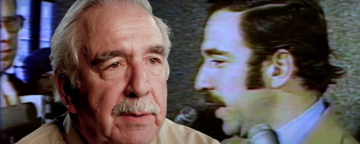At a virtual celebration of Benjamin Franklin's 315th birthday, APPC Director Kathleen Hall Jamieson was honored with the 2021 Franklin Founder Award.


At a virtual celebration of Benjamin Franklin's 315th birthday, APPC Director Kathleen Hall Jamieson was honored with the 2021 Franklin Founder Award.

A new report from APPC and Penn's Center for Ethics and the Rule of Law addresses national security and the Arctic and the emerging climate crisis.

FactCheck.org has released its "whoppers of 2020" on the year's political fabrications. Once again, President Trump tops the list though President-elect Biden is on it, too.

Distinguished fellow Susan Ness, co-chair of the Transatlantic Working Group, wrote in Slate that European and American governments should work in tandem on digital platform regulation.

Annenberg Classroom has released a new film about the First Amendment right of the American people “to peaceably assemble,” the latest in its series of award-winning documentaries about the U.S. Constitution.

APPC, CERL, and CNAS released "There's Still Time to Protect American Democracy Against Threats to the 2020 Election," the first in a weekly series of commentaries.

In a new report, the Transatlantic High Level Working Group on Content Moderation Online and Freedom of Expression urges adoption of a flexible regulatory framework with greater transparency and accountability to curb online hate speech, violent extremism, and viral deception.